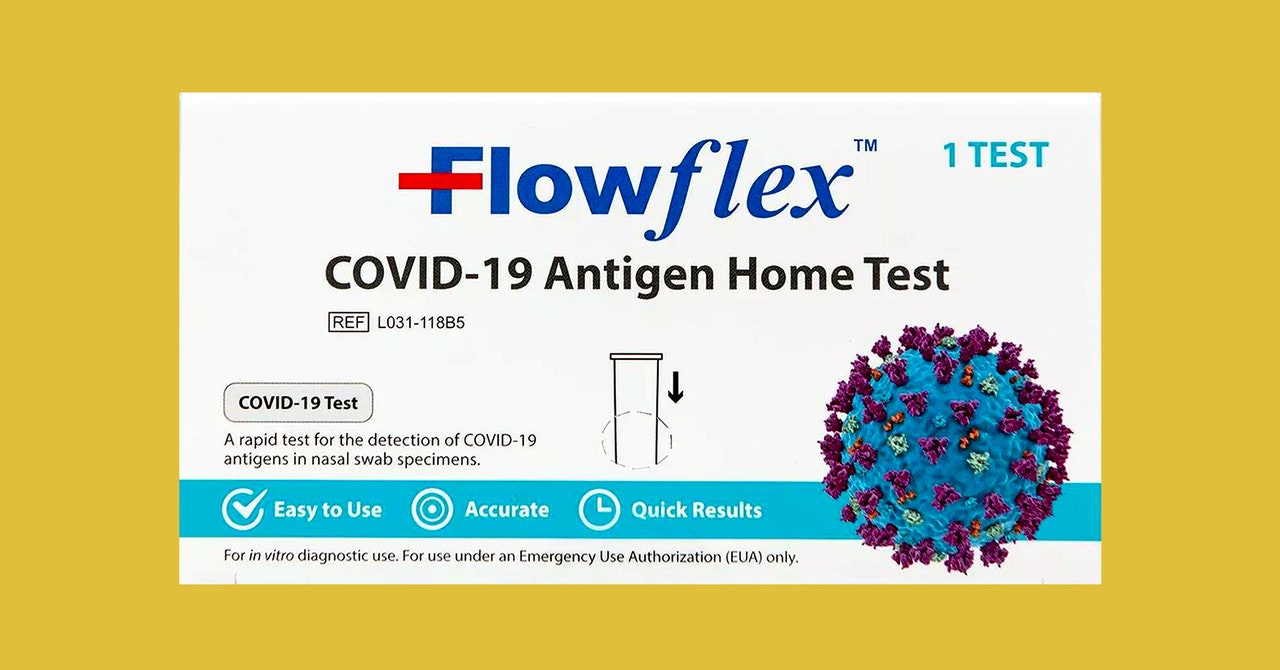It’s worth noting that we previously listed Ellume as an “At-Home Covid Test to Avoid” because it was recalled due to “higher-than-acceptable false-positive test results” for Covid-19 back in October and November of 2021. In December, security researchers found that they were able to fabricate positive or negative test results through Ellume’s Bluetooth-enabled test device. But an Ellume spokesperson says all affected tests have been pulled from store shelves and online retailers since then. Ellume tests currently available for purchase are safe to use and are not impacted by the recall—the connected app won’t let you proceed with the test if it’s the version that was recalled. As for the hack, Ellume says it has fixed the issue.
Warning: An app is required to use this test, so you should check if your phone is compatible. You’ll receive a “Test Error” result if the test is damaged, including by exposure to extreme temperatures or humidity.
Photograph: Siemens Healthineers
The Clinitest Rapid Covid-19 comes with five tests per pack. For each test, you’ll have a sterile swab, test cassette, prefilled extraction tube, and dropper tip. Swab both nostrils five times each, mix the swab with the solution, add four drops to the cassette, and wait 15 minutes. If the test is positive, you’ll see two pinkish-red lines appear—one at the “C” (control) line and another at the “T” (test) line. If it’s negative, you’ll only see one line next to the “C” on the cassette. I’ve used this test and it’s easy to conduct and understand.
In addition to at-home antigen rapid tests, you can also opt for an at-home molecular test. Antigen tests (rapid tests) detect proteins on the surface of the virus, while molecular tests (typically known as PCR tests) detect the virus’s genetic material—making it typically more accurate. But since PCR tests require a laboratory and a few days to receive results, they’re not as convenient as 15-minute rapid tests.
The molecular tests below use central hubs equipped with lab-quality technology. With the help of a few other accessories, these tests can provide PCR-like results within 15 minutes. It’s more helpful for those who travel often and/or work in industries that require being around large groups of people.
Cue Health’s molecular at-home test (7/10, WIRED Recommends) is perhaps the most luxurious on the market (a sentence I never thought I’d say). If it weren’t for its extremely steep price (a Cue Reader and 10-pack of swabs will set you back a whopping $854)—even if you opt for one of its membership tiers with subscription pricing)—I’d easily recommend it solely for its ease of use (plus the 97.8 percent accuracy). No solution, tubes, cassettes, or test strips are required. Simply open the connected app, insert a cartridge into the Cue Reader, swab your nose, and insert the swab into the cartridge. After 20 minutes, you’ll receive results on your phone. The company says its test has an accuracy rate of 97.8 percent.
Warning: An app is required to use this test, so you should check if your phone is compatible.
Lucira doesn’t require a smartphone, but you can download the Lucira Connect app to keep a test record. It’s easy to use—place the vial of solution into the reader, swab both nostrils, stir the swab in the solution, snap the vial closed, and push it further down into the reader. After 30 minutes, you’ll see a green light next to the positive or negative label, depending on the result. There’s also a label for an invalid result, which means you should repeat the test.


